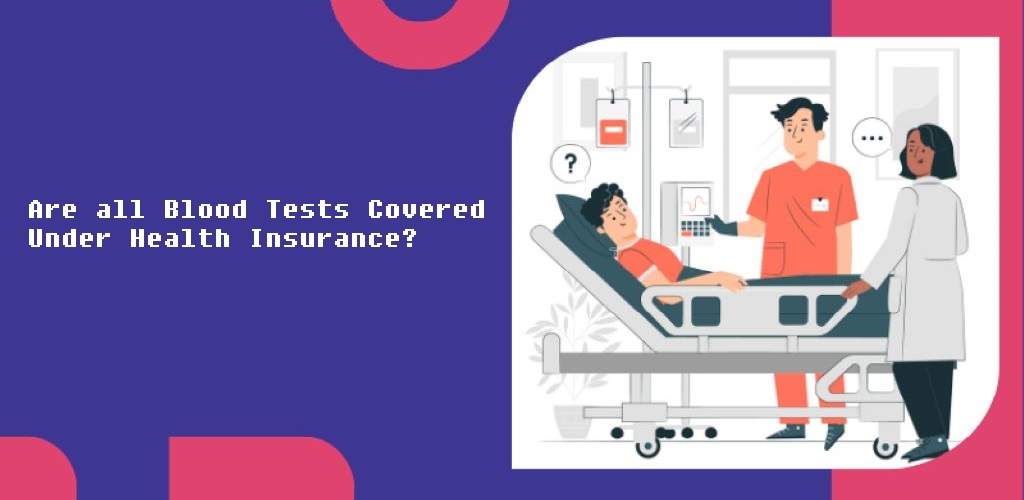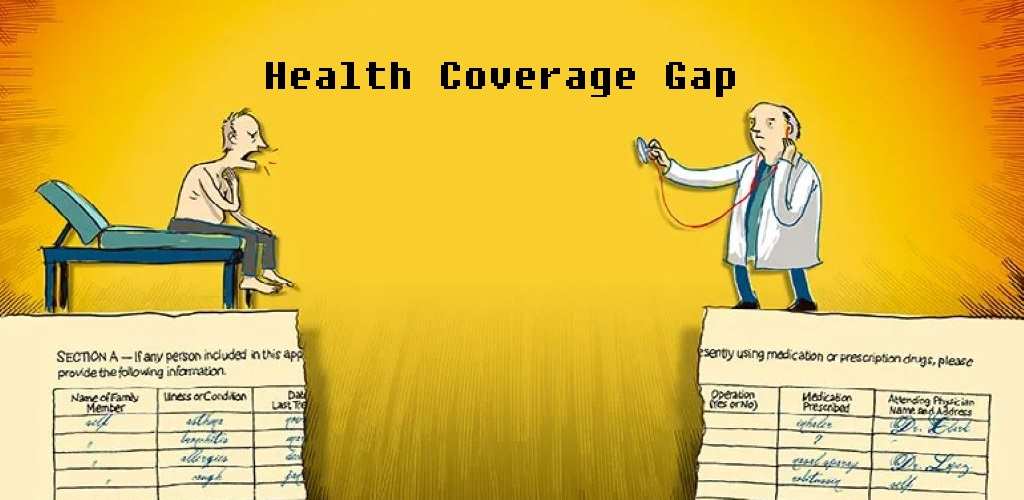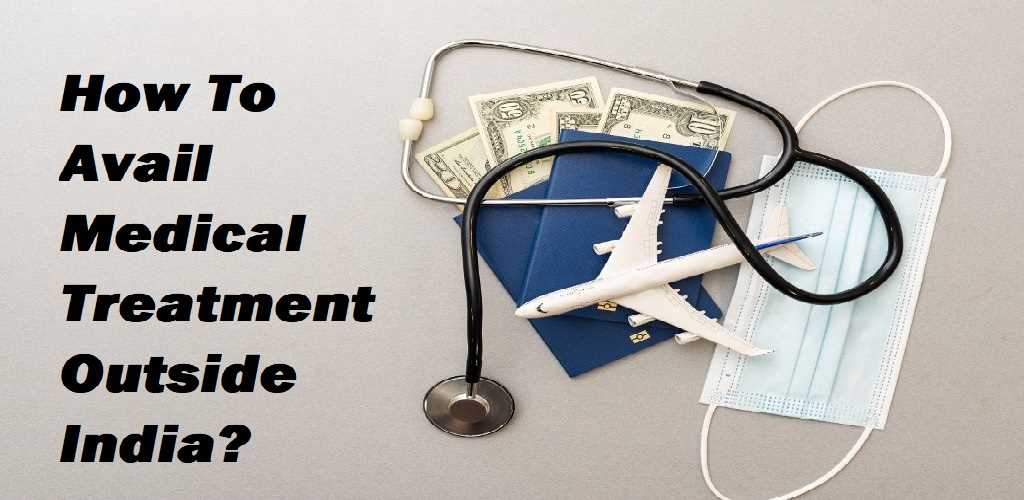Health insurance, as a whole, is incredibly important to protect against unexpected medical emergencies. Since corporates do take care of their employees for overall company and employee benefits, they started providing “Group Health Insurance”. But many people are not aware of the term; they start connecting it with “Individual Health Insurance”. Group health insurance and individual health insurance are very different from each other. Understanding these differences can be challenging and often leads to confusion for many people.
Group health insurance is a valuable benefit for salaried employees. Employers provide this insurance to ensure that their employees are financially protected during medical emergencies. The employer pays the insurance premium on behalf of the employee. However, once the employee leaves the company, the coverage typically ends. Some companies offer an option for employees to switch from group insurance to individual insurance.
In this post, we’ll discuss the process of switching from group health insurance to individual health insurance in detail!
Benefits of Porting from a Group Health Plan To an Individual Health Plan
Here is a list of the potential benefits of switching from a Group Health Plan to an Individual Health Plan.
- Reduces any Sort of Dependency
One of the biggest benefits of shifting from a group health plan to an individual health plan is that you won’t have any kind of dependency on anyone. When you have Group Health Insurance, your health insurance is tied to your employment; it makes you dependent on your employer for coverage. If you leave the company, you lose this benefit. However, with an individual health insurance policy, your coverage is independent of your job. This means you remain insured regardless of your employment status, providing peace of mind and financial security.
- Comprehensive Coverage
Another major benefit of shifting is that while modern Group Health Insurance plans offer good coverage, individual health insurance policies typically provide more comprehensive options. Remember that an individual plan enables you to choose the sum insured that best suits your needs, add additional coverages, and choose long-term plans. With such kind of unmatched flexibility, you can tailor your insurance to cover specific health risks and medical needs more effectively than a standard Group Health Insurance.
- Waiting Period
Another major benefit of switching from a group health insurance plan to an individual health plan is that the waiting period you served under the group plan is usually credited to your new individual plan. This means you don’t have to restart the waiting period from scratch if you’ve already fulfilled the required conditions under your Group Health Insurance. It helps you access benefits like coverage for pre-existing conditions more quickly.
- Waiver of Waiting Period
Last but not least, converting from a Group Health Insurance to an individual health insurance policy often benefits from a waiting period waiver. Group insurance policies generally have shorter waiting periods, and sometimes no waiting period at all, for certain conditions. When you switch to an individual policy, this advantage is carried over. As a result, your new individual policy provides immediate coverage from the day you convert without the need to wait for the standard waiting period to elapse.
How to Switch from Group Health Insurance to Individual Health Insurance?
If you have a strong interest in and dedication to becoming a health insurance agent, then you can pursue this career. Let’s look at the parameters that decide whether you’re eligible to buy health insurance.
If you want to switch from Group Health Insurance to individual Health Insurance, here is a list of the steps you need to follow.
- Choose your Preferred Plan
The first step to switching your group health insurance to an individual health plan is that you should research and select an individual health insurance plan that meets your needs. You can choose a single comprehensive plan or compare multiple plans with different features and benefits. Furthermore, you need to select an individual health insurance plan that meets your needs. You can choose a single comprehensive plan or compare multiple plans with different features and benefits.
- Initiate the Process
In the next step, you must inform your current insurance provider that you wish to switch from your group plan to an individual one. You can easily do it by filling out a form, which may be available online or offline. Along with the form, provide necessary documents such as your existing group plan details, claim history, and health profile. In some cases, the insurer may require a health check-up and relevant medical reports.
- Complete the Documentation
After that, you will need to ensure that all required documentation is submitted at least 30 to 45 days before your group plan is due for renewal. This allows the insurer enough time to process your request. Furthermore, it’s your duty to provide any additional information the insurer may request based on the initial documentation.
- Pay the Premium
Unlike group plans, where the employer pays the premium, you will be responsible for paying the premium for your individual plan. The insurer will determine the premium amount based on their underwriting process and the documents you provided. Ensure you carefully read the policy terms and conditions to understand what is covered and what is not. Make sure you clear doubts with the insurer before making the payment.
- Verify the Details
In the last step, you will need to make the payment, the insurer will issue your new individual policy. Ensure you verify all the details in the policy document to ensure accuracy. If you find any discrepancies or issues, contact the insurer immediately to get them rectified.
What To Consider While Shifting from Employer Health Insurance to Individual Health Insurance?
Listed below are the factors to consider while switching from Group Health Insurance to Individual Health Insurance.
- Underwriting
Every health insurance company has its underwriting process, where it analyzes the risks involved in insuring an individual to determine the appropriate premium. When you request to switch from a group to an individual policy, the insurer evaluates your health from a risk perspective to decide whether to insure you and at what cost.
- Medical Check-Up
Another major factor to consider while switching from group health insurance to individual health insurance is that you might need to undergo various medical tests to determine your current health status. The results of these tests significantly impact the premium for your individual policy. For example, if the tests indicate high-risk factors like elevated weight, blood pressure, or sugar levels, it could lead to a higher premium.
- Inform Before Policy Expiry
Another major factor to consider is informing your insurer about your intention to switch from a group plan to an individual one before your current policy expires. Ideally, start this process as soon as you decide to leave your job. Ensure you provide at least 30 days’ notice, which helps ensure a smooth transition and avoids any coverage gaps.
- Waiting Period
The last step to consider while switching is that the waiting period is the time you must wait before you can claim benefits for certain conditions under your health insurance. Group health insurance plans typically do not have waiting periods, but individual plans might. When switching, the time you were covered under the group plan can often be credited towards the waiting period for the individual plan. Ensure the insurer acknowledges and credits this to avoid starting a new waiting period from scratch.
Should You Transfer Your Corporate Health Insurance to Individual Insurance?
If you don’t already have an individual health insurance plan, it’s a good idea to consider transferring your corporate health insurance to an individual plan. However, keep in mind that not all corporate health insurers allow such transfers. Corporate plans are a type of group health insurance policy; porting these to individual plans can be challenging.
The best option is to secure an individual health insurance plan. You can do this either before starting a job with a corporate health plan or while you’re still employed and covered by the corporate plan. This approach ensures continuous and comprehensive coverage regardless of your employment status.
Final Thoughts
So, there you have it! If you are covered by your employer’s health insurance policy, then it’s wise to buy a separate individual health plan to manage the rising cost of healthcare. If you don’t already have an individual health plan, IRDAI regulations allow you to convert your corporate health plan into an individual one, enabling you to retain and enjoy the coverage benefits independently.
Frequently Asked Questions
Listed below are the frequently asked questions related to switching from group health insurance to individual health insurance.
No, you don’t need to opt out of your employer’s health insurance plan. Since your employer pays for it, you can keep that coverage and also buy an individual policy for additional protection.
Your previous employer’s insurance coverage will end when you leave the company. If your new employer offers a group health insurance plan, you will be covered under that plan according to its terms and conditions. It’s a good idea to discuss the details with your new employer.
The employer’s health insurance coverage typically ends when your employment contract ends. Make sure you check with your employer and the insurer for specific details.
Yes, depending on the insurer’s terms and conditions, you can usually switch to a Family Floater Plan.
The main advantage of employer-offered health coverage is that the employer pays the premium. However, this coverage ends when you leave the company. Therefore, it’s wise to have an individual health insurance policy for additional protection along with your employer’s coverage.








